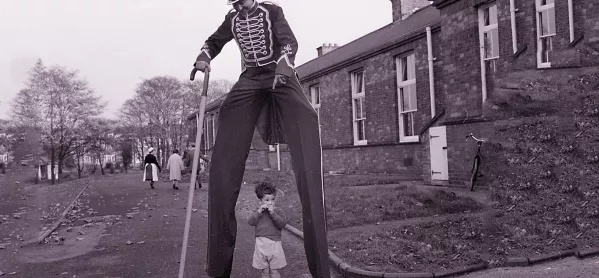I observe a lot of lessons.
I see a lot of teachers with a range of styles, experience and ability. I see a lot of attempts at providing challenge in lessons.
But I have a little bit of an issue when it comes to extension tasks: they may be set with the best intentions, but ultimately they are unfair.
Quick read: How to give faster and better feedback
Quick listen: Why attachment-aware teaching matters for every child
Want to know more? What students can teach you about technology
We judge things by their labels, we can’t help it. We assume students in the “bottom” set are only capable of certain things; we have an unconscious (or conscious) bias that influences our decision-making when it comes to setting appropriate work or determining desired outcomes.
The trouble is, if we do it, students will do it too. And they do; they make judgements.
When they see the word “extension” it means one of two things: either a) they are self-regulated, self-motivated and they enjoy challenge so they relish the opportunity to do “more” or b) they define it as “more work to do that perhaps isn’t necessary to the main body of the lesson, otherwise everyone would be asked to do it”.
The independence myth
Extension tasks, are, in my experience, often just lazy nods to “independence”, and we know that independence is a myth.
As Daisy Christodolou cites in her excellent Seven Myths About Education (2014): “Teacher instruction is vitally necessary to become an independent learner.”
Students, particularly novice learners, need guidance, feedback, worked examples and support. Too often the extension task abandons those concepts in favour of keeping the “better” students busy at the end of a lesson.
Students need to be guided and supported before they are ready for independence, and that level of independence is again highly contextualised - the best person to make the judgement and to provide the appropriate scaffold is the teacher.
Also, too many tasks can mean overload for a teacher in terms of managing them and knowing properly where every student is in the sequence, in order to offer them the most responsive and formative feedback.
Teach to the top
So, how can we extend without the dreaded extension task? As Tom Sherrington explores in The Learning Rainforest, we have a range of strategies we can employ when we “teach to the top”.
We start by not capping expectations: “lift the lid” and see what everyone is capable of. To quote the education psychologist Joseph Renzulli (as Sherrington does), “a rising tide lifts all ships”.
Cater explicitly for the highest-attaining learners in the group (those for whom the extension is designed) and the benefits will spread to all, as well as creating and fostering an ethos within the classroom of high standards and aspiration.
Ideally, the whole lesson becomes an extension of the existing knowledge base, achieved through adding the new material in small steps and using success as the motivator, the driver.
All differentiation - which is what an extension activity is an attempt at - should be done through support and feedback, not task. As an expert in your subject you can stretch those you perceive to be more able at that time (remember context and domain) through your questions and your debate; a ready-made “do this if you’ve finished” has no actual value as it isn’t really founded in feedback - it isn’t responsive.
If a task is important enough for some people to attempt, then everyone should be doing it - simple.
As with many aspects of education, it is how we as teachers and lovers of our subject model the value and importance of the work being done. There is, of course, a place for stretch and challenge - just frame it properly and give it respect.
Henry Sauntson is assistant principal at City of Peterborough Academy





